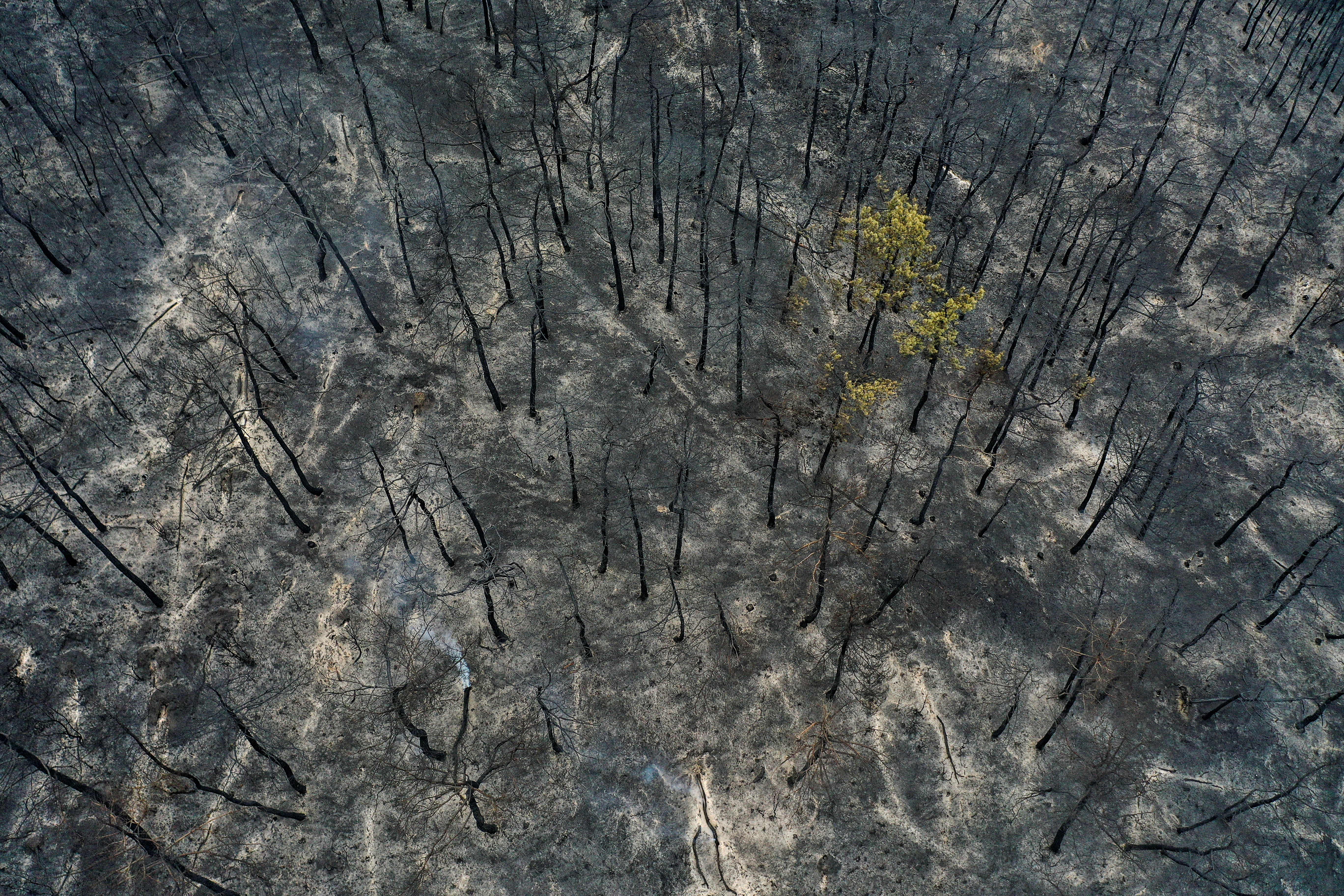Authorities scrambled to put out a fire in a protected national park in northern Greece on Monday, burning through acres of forest for days that is home to various species of wildlife.
The Dadia Forest National Park in the Evros prefecture is an important protected area in Europe, home to a variety of flora and fauna including various birds of prey, particularly the protected black vulture. Hundreds of plant species, as well as mammals, reptiles, amphibians, butterflies and birds are in the area.
Wildlife groups had arrived to the area to carry out rescues and care of wounded animals.
Greece’s fire service said aircraft and ground forces were battling the blaze, and further anti-fire zones using bulldozers were being created in the forest to keep the flames from consuming more ground. The country’s new “forest commandos” were part of a team of some 320 firefighters, 75 vehicles, and 23 planes and helicopters taking part in the operation. Military vehicles and officers were also taking part.
The fire was one of several in Greece in the last days driven by high winds and temperatures. Thermometers surpassed 40 degrees celsius (104 fahrenheit) in parts of the country on Monday.
According to reports on Cybc radio on Monday evening, there is only one active front now in Evros, while the situation has improved in Lesbos where the fire has been limited to the Rogada area, from where it started on Saturday morning.
The fire was contained in Akritochori, Messinia, while the situation is better in Krestena, Ilia.
The fire in Ayia Galini, in Rethymno, Crete, has also been brought under partial control, Cybc reported.
Despite the improved picture, there are still active fires in many areas and firefighters are still battling the flames to fully extinguish the fires.
The fire service announced that 45 forest fires have broken out today alone.
ATHENS PROVIDES RELIEF TO RESIDENTS
Meanwhile, the Parthenon temple in Athens was covered in a haze as temperatures in Greece surpassed 40 degrees celsius.
People in the capital sought shelter under the shade of trees, at the beach, or at air conditioned relief centres provided by the municipality as the heatwave in Europe spread east.
As part of renovations in the city to tackle extreme heat, the municipality is replacing cement on sidewalks with cold materials such as white marble, which absorbs less heat, keeping the capital cooler. Along with the white marble sidewalks, more fountains and trees are also being installed as part of an ongoing project to help bring down temperatures in a city that sizzles every year.
Municipal workers handed out bottles of water to the homeless in the city and encouraged them to find shelter in the relief centres.
“They (homeless) have accumulated a lot of health problems and under these conditions they tend to increase, so they are more vulnerable. They (were always) more vulnerable anyway under regular conditions, so imagine in extreme conditions,” said psychologist Foivos Kolovos, a member of the team, referring to the heatwave.
“We will (have to) get used to it like this, we will have to get used to it, the heatwaves, and the cold, and the heat, all of it, the temperatures will depend on the times,” said pensioner Evanthia Markaki as she sat in one of the seven air conditioned relief centres in the city that opened its doors to the public for the heatwave.
Beaches on the Athens coast filled with people, but some were not bothered by the heat. A group of BMX bike riders held a competition on Sunday (July 24) which included riding off a ramp into the sea as part of BMX international day.
Temperatures hit 40 degrees Celsius (104 Fahrenheit) in parts of Greece on Sunday as a heatwave that has hit other parts of Europe spread east and was expected to last for most of the coming week, according to meteorologists.
Last year the country suffered a prolonged heatwave during the summer months, its worst in decades.







Click here to change your cookie preferences